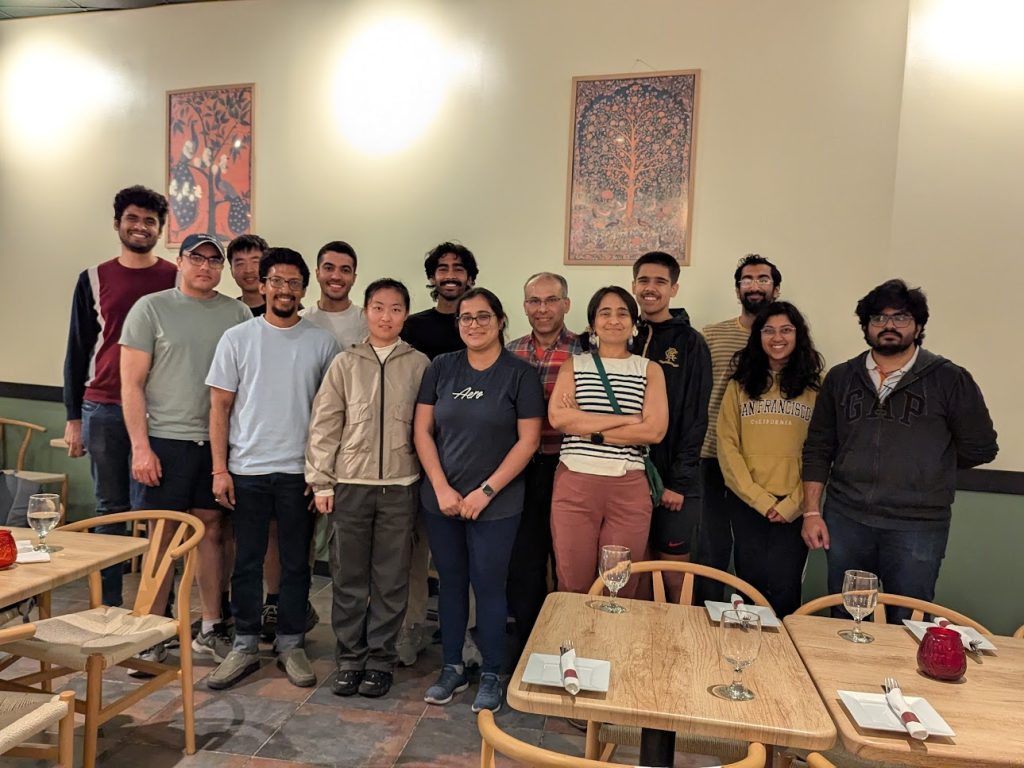DCSL award winners for Spring 2025 were announced at the end-of-semester get-together. The awards are determined based on excellence in research, as evidenced by publications, presentations, proposals, external awards, and mentoring new members of the group.
Group Champ: Pengcheng Wang
“For bringing 3D processing to cars”
Best Fresher: Kavindu Herath
Folks who have joined the group within 1 year are eligible for this award.
“For showing how to learn among peers”
Superstar Undergrad: Jagannath Prabhakaran
“For squeezing transformers down to size”
